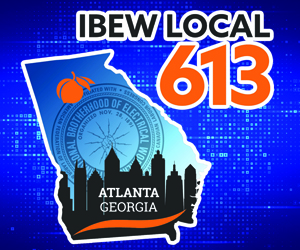The following piece was written by Leon Stafford and published on September 24 by the Atlanta Journal-Constitution.
The College Football Hall of Fame, which officials will announce today is coming to Atlanta, will cost $50 million and be funded by city, state and private sources.
The 50,000-square-foot hall will open as early as September 2012, said Gary Stokan, president of the Chick-fil-A Bowl, which oversaw the five-year effort to snag the museum from its home in South Bend, Ind.Officials hope to locate the attraction near Centennial Olympic Park – already a powerhouse entertainment district with the Georgia Dome, Philips Arena, Georgia Aquarium, World of Coca-Cola and the future home of the Center for Civil and Human Rights, also projected to open in 2012.
“This is an outstanding draw for Atlanta and I think makes the statement that Atlanta is one of the best tourism cities in America,” Stokan said. “This will be the portal, the mecca of football.”
The Chick-fil-A Bowl will fund $5 million of the hall’s cost. Chick-fil-A, the Atlanta-based fast-food company, will pitch in another $5 million, Stokan said. He declined to disclose city and state funding, preferring to leave that to Mayor Shirley Franklin and Gov. Sonny Perdue, who will speak at a news conference this afternoon.
Other corporate fund-raising has not yet begun.
“Out of respect to South Bend, we didn’t move forward to any finalization of corporate sponsorships,” Stokan said.
The deal puts the museum – which brings in big names such as former NFL star Troy Aikman and former coach Lou Holtz for annual inductions – in Atlanta for the next 30 years, Stokan said.
The complete funding package will be finalized in late December, Stokan said.
He projected that the hall would attract “upwards of 500,000 people” annually, which would make it considerably more successful than it has been in South Bend.
Projected to attract 200,000 visitors annually when it opened there in 1995, the hall drew 150,000 its first year. But its numbers fell well below expectations thereafter, averaging 60,000 annually.
Atlanta boosters hope it will draw from the millions of sports fans who come downtown for games at the Dome and Philips Arena; from the conventioneers at the Georgia World Congress Center; and from those who flock to the many attractions around Centennial Olympic Park.
Atlanta sports marketing guru Bob Hope said proximity to popular attractions does not guarantee success. It will take creativity to keep people coming after the newness and the novelty have worn off, he said.
“I don’t think they will do well by just opening the doors. They will have to do a lot of marketing and have to keep it fresh,” Hope said.
Thinking more broadly is what helped Atlanta win its bid to move the museum, said Steve Hatchell, president of the National Football Foundation and the College Football Hall of Fame. While other cities like Dallas also wanted to be the new home, Atlanta was willing to put together financing to back it up.
“We didn’t send out [requests for proposals], these cities came to us, Hatchell said. “We weren’t shopping to move.”
He expects Atlanta will bring the museum more visibility and draw more foot traffic than South Bend because of the population differences – 100,000 people in South Bend compared to metro Atlanta’s more than 5 million.
The Atlanta museum will include an education component that will be developed in consultation with local school chiefs like Atlanta Superintendent Beverly Hall. And it will offer entertainment, including a big outdoor screen for visitors who don’t have tickets for games at the Dome or Philips to watch, Stokan said.
“I call it ‘edutainseum,’” he said.
Officials are looking at four downtown sites for the museum, but Stokan declined to identify them. Downtown property owners and real estate agents said one of the spots is a parking lot on Centennial Olympic Park Drive.
Stokan said an architect will be announced in about a month, and the decision on the site will be made in the next four months.
“Our preference is around Centennial Olympic Park,” he said of the site selection.
Pattsie Rand, sales and marketing director for the GWCC, said being a convention town will help. When deciding where to hold conventions, meeting planners are always looking for the new. During its first couple of years, the Georgia Aquarium pulled in a lot of business because conventioneers wanted to hold opening ceremonies at someplace different.
Cesar Wurm, sales and marketing director at the W Atlanta downtown, agreed. He said the museum will not be the main reason that convention traffic will come, “but it helps you close the deal as an added value.”
David Marvin, who has developed several downtown hotels, said Atlanta’s track record in making the city more destination-friendly has been good.
“As Bernie Marcus [the aquarium's builder] taught us, Atlanta really supports great destinations,” he said. “I imagine it will do very well here. It’s another arrow in Atlanta’s quiver.”






















































